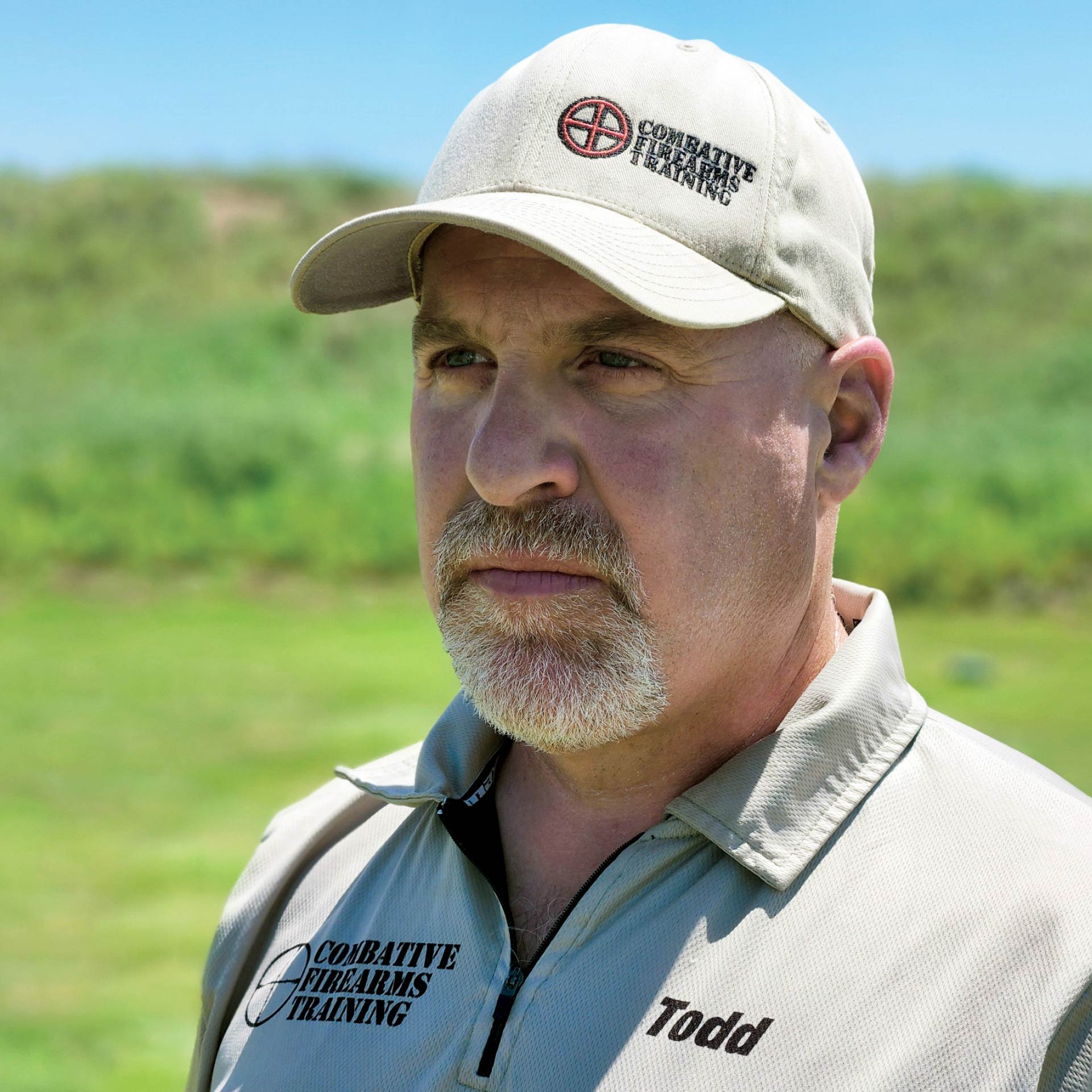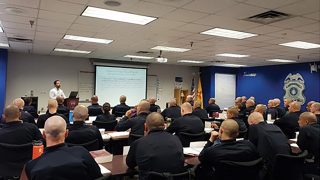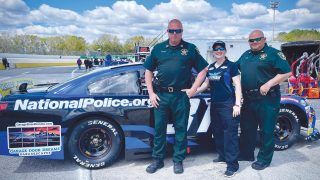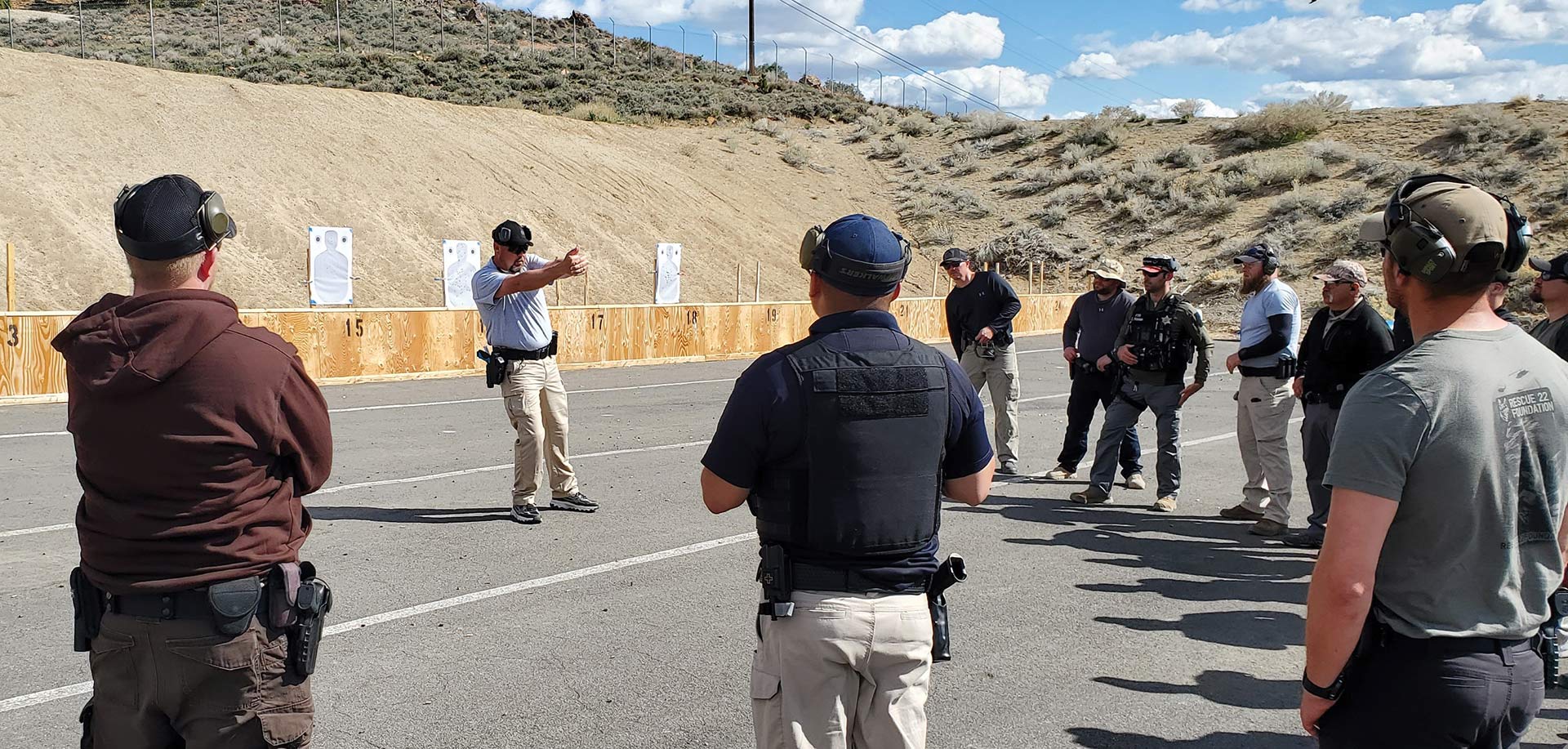
In 1997, I attended my first firearm instructor certification course. It was two weeks of shooting pistols and shotguns that helped improve my shooting skills and reinforced what I was taught in the police academy. I learned how to design basic range drills, reviewed some use-of-force and failure-to-train case law, and got some hands-on experience managing the range in a safe manner. In hindsight, the class material wasn’t terrible, but I really didn’t learn much about teaching, coaching, instructional leadership or diagnosing shooters.
A short time later, I attended a firearm instructor conference and got my first opportunity to train with world-class instructors from outside my state. The International Association of Law Enforcement Firearms Instructors (IALEFI) held a regional training conference in Onalaska, Washington, with instructors that included Marty and Gila Hayes from the Firearms Academy of Seattle, retired NYPD and legendary firearm instructor Jim Cirrilo, Clyde Caceres from Crimson Trace, who presented a class on laser-sighting systems, and Jeff Hall from Force Options, who was featured on the History Channel documentary, Sniper: Deadliest Missions. These instructors intentionally pushed my comfort level beyond my failure point, allowing me to see what I was capable of and where I needed to focus my own training efforts. They demonstrated the skills and drills they asked their students to perform and spent a significant amount of time training us to be better teachers, coaches, and mentors.
Many simply don’t understand the level of performance they’re capable of because no one has allowed them to safely push their limits.
Since then, I have been continuously shocked by the fact that many instructors and shooters have been saddled with the curse of low expectations. Whether they simply don’t know what they don’t know or they intentionally set low expectations for themselves and their students, too many in our profession continue to rise to the level of these low expectations. Many simply don’t understand the level of performance they’re capable of because no one has allowed them to safely push their limits. Instead, law enforcement firearms training has been boring, redundant and slow.
Be realistic
There is a time and place to slow things down. When we first learn to shoot, we need a solid grasp of the fundamentals of marksmanship. This is best done slowly and methodically until we understand what it takes to repeatedly make good shots. Likewise, if we’re working on a new technique or tactic, it’s best to walk before we run. The problem arises when that slow speed is the only way we practice.
Law enforcement firearm instructors have an obligation to provide the best training possible to prepare officers to prevail in a fight where death is a possible outcome. When the prospect of death is lingering over the heads of officers, we need them to perform to the highest skill level possible. If it’s true that under stress, officers will revert to their level of training, then we need to train them to perform at a higher level instead of reverting back to being slow.
Watch some of the officer-involved shooting videos. During a fight for their life, are officers shooting slowly and methodically, or are they pushing the limits of performance? Most of them are shooting very quickly, but very few police officers are trained to shoot quickly, deliberately and accurately. If they are going to shoot quickly to defend lives, we should equip them with the skills they need to be successful.
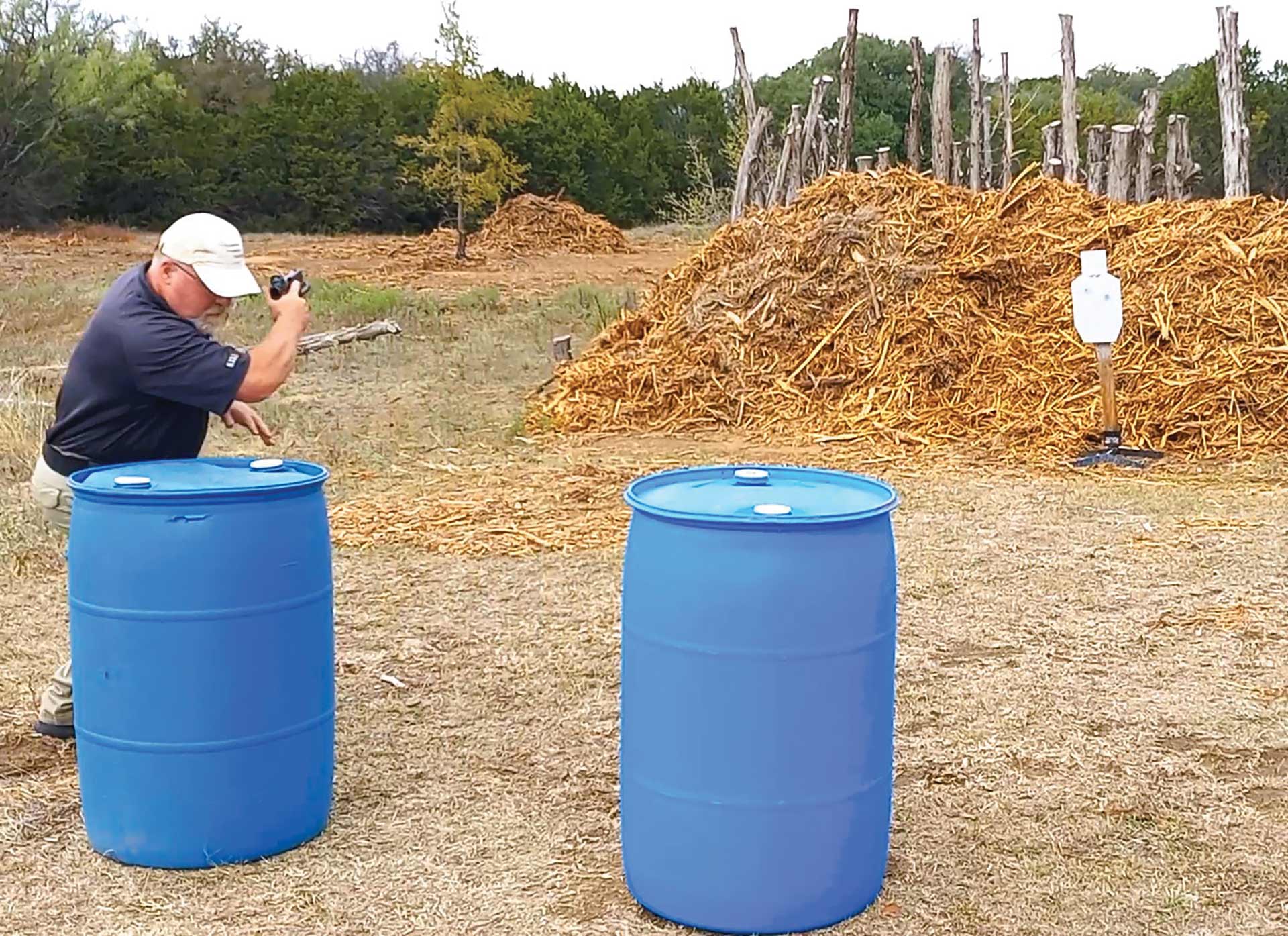
Training culture
This starts with changing the range culture. Far too often, instructors sabotage their own classes by belittling, embarrassing and ridiculing their students. The result is we have students who dislike going to the range so much they get physically ill and sick to their stomachs just thinking about firearms training. Whose fault is this? As firearm instructors, this is our fault. We need to stop this type of behavior before it starts. A positive training culture that supports instead of abuses students is a great place to start.
We need to make it acceptable and even encourage our students to fail safely if it facilitates the learning process. Not all misses in training are unacceptable. For example, if the misses occur during drills when a student is intentionally pushing themselves to discover the boundaries of their shooting performance, then they are actively involved in training rather than simply practicing the same old things in the same old way. If we are working to improve our ability to shoot fast and accurately, we need to determine the pace at which skills begin to fall apart. Additional repetitions should be done at this pace until all the shots are kept within an acceptable target area.
This brings me to a pet peeve about much of law enforcement firearms training. Too many firearms instructors focus on being either fast or accurate. There is no need to make these separate training goals. Instructors who are trained to be fast and accurate can build shooters who are also fast and accurate. If we train officers to be fast and accurate while being problem-solvers and making good decisions, officers will be much better prepared to prevail in a high-stress fight for their lives.
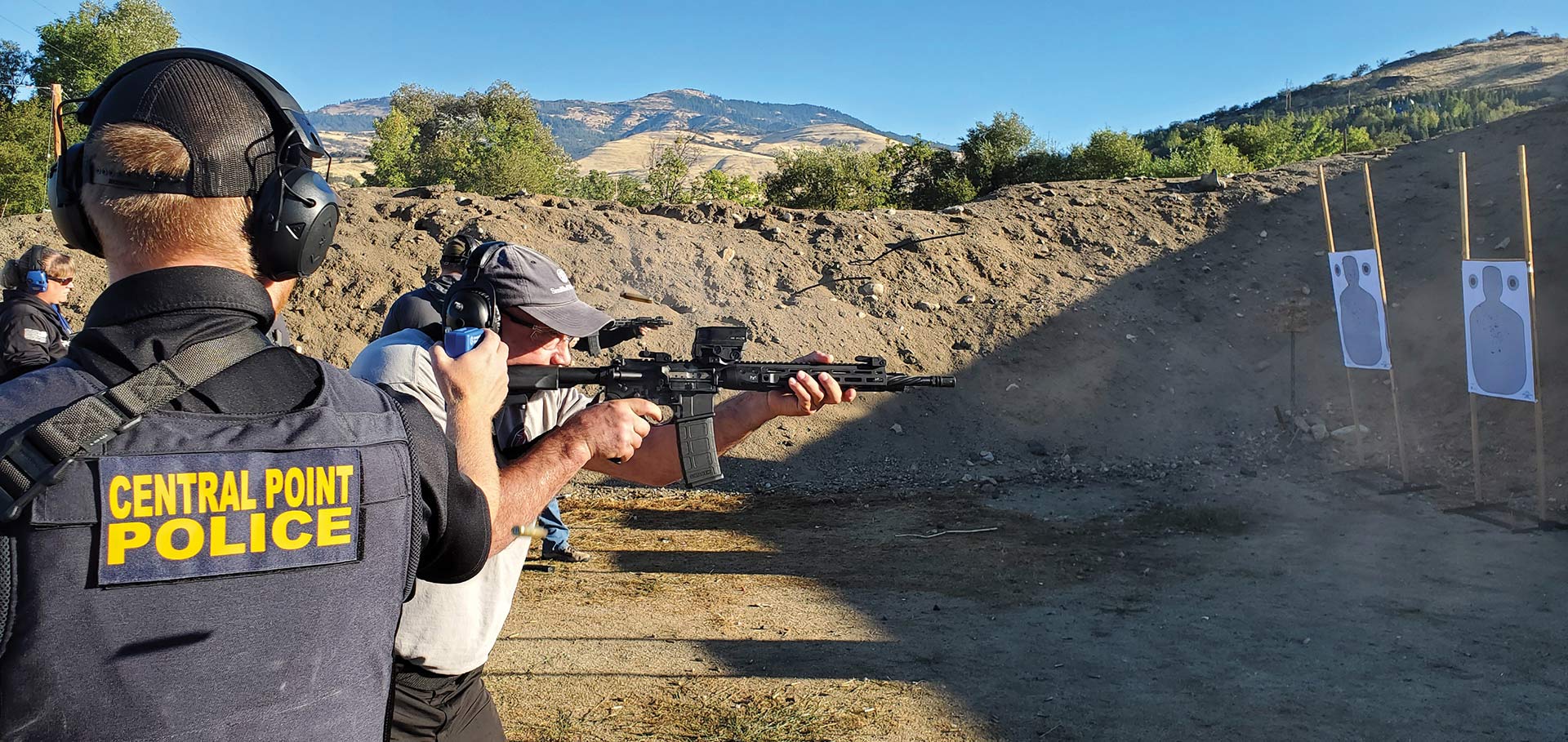
Better instructors
As instructors, it’s incumbent upon us to fully explain each skill and drill we are asking our students to perform. These communication skills are critical for success. We need to confirm our students understand what we are asking of them. This includes the accuracy standard for each drill. If we don’t explain the accuracy standard, most students will conduct drills slowly so they don’t risk a miss that draws the instructor’s ire. Maybe it’s time to review what you just read about training culture.
It’s just as important for instructors to be able to demonstrate the skills and drills to our students. This provides students with behavior to model. After hearing the instructor explain the skill or drill, students should be able to see it so they can attempt to replicate it to the best of their ability.
Unfortunately, here’s where some instructors forget the reason for demonstrating drills. I know some instructors who refuse to do demonstrations. They give all sorts of excuses, but the real reason is because they are afraid of failing in front of students. If this is the case, just be better.
On the other end of the spectrum, I have been in classes where the instructors want to prove to everyone in class that they’re the best shooter on the range. These classes turn into nothing more than a demonstration of the instructor’s shooting prowess. No one cares. Just teach better.
When it comes to doing demonstrations, remember it’s not about you. It’s about your students. No one cares if you are the best shooter on the range. As the instructor, your job is to make your students better. Demonstrations need to be for the student’s learning objectives and not for the instructor’s ego.
It’s time to step out from the shadow of mediocrity. Firearm instructors and our officers have been burdened by the curse of low expectations for far too long. Instructors need to be more than a red shirt and a Sharpie. Be a mentor, leader, coach and teacher who can squeeze the most performance possible out of each student. Raise your expectations, and they will rise to the occasion. For our officers and their families, just be better.
As seen in the August 2023 issue of American Police Beat magazine.
Don’t miss out on another issue today! Click below:

